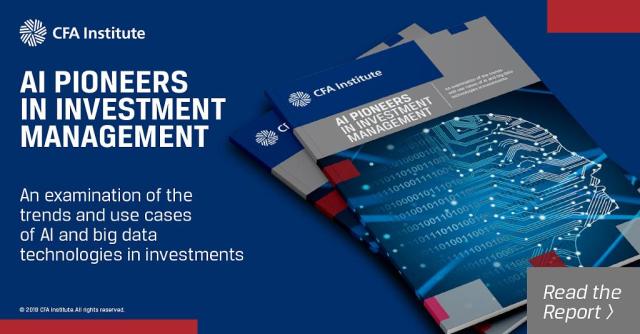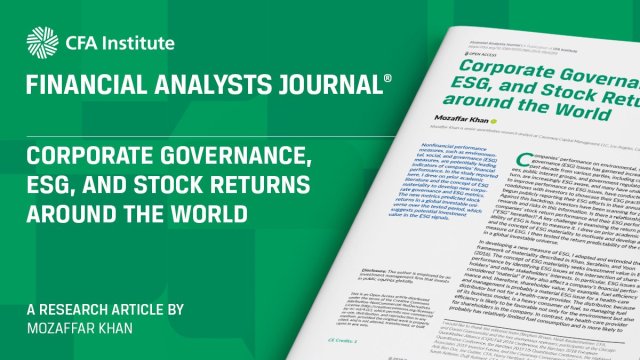[ad_1]
Bonnie St. John has spent her life turning the idea of “normal” on its head.
“Normal is overrated,” the bestselling author of Micro-Resilience and How Great Women Lead told delegates at the CFA Institute Women in Investment Management 2019 Conference. “Aim higher.”
She would know. Despite having her right leg amputated at age five, St. John became the first African-American to win medals in Winter Olympic competition — a silver and two bronze medals in downhill skiing at the 1984 Paralympics. Today, she is CEO of the Blue Circle Leadership Institute, where she leads several global virtual leadership initiatives that help multicultural women overcome the singular challenges they encounter in their professional lives.
St. John began her presentation by sharing a quick story about one of the hardest things she has ever done — return to Shriners Hospitals for Children in Los Angeles after her leg was amputated.
“I didn’t go back for decades,” she said. “I had been to other
hospitals. I would go talk to patients and kids and sign autographs. But I had
avoided that hospital for a long time.”
When she finally visited and saw the patients in wheelchairs and on gurneys, with various casts and tubes, she was reminded of a scene from a battlefield. She realized why returning to a place that held so many painful memories was a good thing.
“It’s important to pull other people behind you. It’s important not to leave people behind in a war zone,” she said. “For me, it’s time travel to the past. For them, it’s time travel to the future to say, ‘I can be just like that. This woman was in a bed just like mine and now she’s got a family and a career and she’s doing all these things.’”
For St. John, “all these things” are her twin callings as an author and inspirational speaker on leadership, diversity and inclusion, and micro-resilience, among other topics.
Here are some of the key takeaways from her presentation:
Mentors vs. Sponsors
Understanding the difference between mentors and sponsors is important, according to St. John.
She shared a simple analogy to clarify the distinction: Imagine you are going to run a five-kilometer race. The coach, or mentor, is the one who, in St. John’s words, “helps you get ready for the race and trains and talks to you and encourages you and helps you when you’re down.”
But a sponsor is the person who signs you up and pays the race’s entry fee. “A sponsor is somebody who says, ‘I know you’re ready. I know you can do this. I’m going to bet on you.’”
In life and career, “we need people who bet on us,” St. John said. The important question is, “Do you have a sponsor who’s willing to bet on you?”
St. John reminded the audience that “all of the most important decisions about your career are probably going to be made when you’re not in the room.”
She noted:
“There is going to be a group of people deciding: Do you get a raise? Do you get a promotion? Do you get a stretch assignment? Do you get a big client? All these different decisions are generally made when you’re not in the room, so there has to be somebody in the room fighting for you to get it. It’s not just like, ‘Oh well, she’s qualified so she’ll get it.’ There are multiple people [who are] qualified. Somebody has to fight for you versus somebody else, and the higher you go, the truer that is that somebody has to be fighting for you. So, who’s pounding the table for you? And which tables do you want pounded?”
Often people make the mistake of thinking they need one “big sponsor,” St. John observed, when, in fact, you need different sponsors for different things.
“There are different rooms where these decisions are being made,” she said. “If your big sponsor is not in that room, not pounding the table, you need to be thinking about different people who can advocate for you in different ways.”
(For more on sponsors, St. John recommended two books, Expect to Win: 10 Proven Strategies for Thriving in the Workplace by Carla Harris and (Forget a Mentor) Find a Sponsor: The New Way to Fast-Track Your Career by Sylvia Ann Hewlett.)
Amplification Strategies
Back in 2016, a White
House women’s office strategy went viral. It went like this: “After one woman offered an idea, if it wasn’t acknowledged,
another woman would repeat it and give her colleague credit for suggesting it.”
They called the strategy “amplification” to hammer across one another’s points
during meetings.
“You can get amplification from other women, but also from other
men,” St. John said.
Be Your Own PR Campaign
St. John told delegates that Carla Harris, vice chair of wealth management and senior client adviser at Morgan Stanley, likes to say, “Perception is the co-pilot to reality.”
Harris spoke at this same conference in 2015 and said, “How people perceive you will directly impact how they deal with you.” While your intelligence and work ethic will affect your success, “a very big component of your success equation is the perception that the marketplace has about you.”
For example, “if you would like to manage a large
group of people, but you are not seen as being motivational, inspirational, or
organized, it doesn’t matter that you can do it. It doesn’t even matter that you did do
it. You won’t get the opportunity to do that if you are not perceived as such.”
While other people’s perceptions may seem out of your control, Harris said that it is possible to train people to think about you the way you want them to. You start by picking three adjectives that you would like people to use to describe you when you are not in the room. These three adjectives must be consistent with who you actually are — “Nobody can be you the way you can be you,” Harris said — and also must be things that your organization values.
Once you’ve identified those three adjectives, behave consistently around them and even use that language when describing yourself. Harris offered an example from her own career to illustrate: After a manager told her that he thought she wasn’t tough enough for finance, Harris talked tough, walked tough, and described herself as tough from then on. Within three months, she had established a reputation as one of the toughest employees at Morgan Stanley.
Positive Gossip
“Everybody gossips, right? We can gossip about each other and we can actually positively gossip about other women, talk other women up,” St. John said.
She relayed a story of a small group of women who would meet for lunch and share stories of their accomplishments and made it a point to brag about each other.
“It’s like they’re arming each other to gossip positively about each other across the business. That’s really powerful, right? We can be intentional. We can do that, and it doesn’t have to be all women,” St. John said. “Let other people brag about you because we do know that it is hard to toot our own horns.”
Identity Collisions
“When the words, behaviors, or attitudes of your co-workers land as a threat to your identity” — that’s how St. John defines an identity collision. And it can leave you feeling excluded. When that happens, it’s important to turn the experience around. To do that, she recommended five simple steps:
- Pause: De-escalate your emotions.
- Focus: Find common values and purpose that provide a basis to build stronger relationships.
- Ask Yourself: What is your own role in this discord? We all have emotional blind spots, so take time to discover what makes you defensive and how that lands with others.
- Expand: Get other perspectives. Move from thinking, “They need to change” to “What can I change?”
- Identify Actions: Commit to constructive joint measures.
Communities of Champions
One person who had an outsize impact on St. John’s life was her late ski coach, Warren Witherell, founder of the Burke Mountain Academy.
Years after retiring from competition, she spoke to him about leadership. She wanted to know how he built champions.
“I never built champions one at a time,” she recalled him saying. “I built communities of champions, because you can only push one person so far. But if you have a group of high-performing people, they will push each other, they will share best practices, they will pick each other up when they fall down, they will cheer for each other’s successes, and everyone will go further.”
St. John looked across the room and reminded everyone, “What you have here, CFA Institute, is a community of champions.”
That’s a mantra worth keeping in mind as you build and develop your teams. And when it comes to your career and life goals, remember: Aim higher!
If you liked this post, don’t forget to subscribe to the Enterprising Investor.
All posts are the opinion of the author. As such, they should not be construed as investment advice, nor do the opinions expressed necessarily reflect the views of CFA Institute or the author’s employer.
Image courtesy of Sony Rai / EyeEm
[ad_2]
Image and article originally from blogs.cfainstitute.org. Read the original article here.



